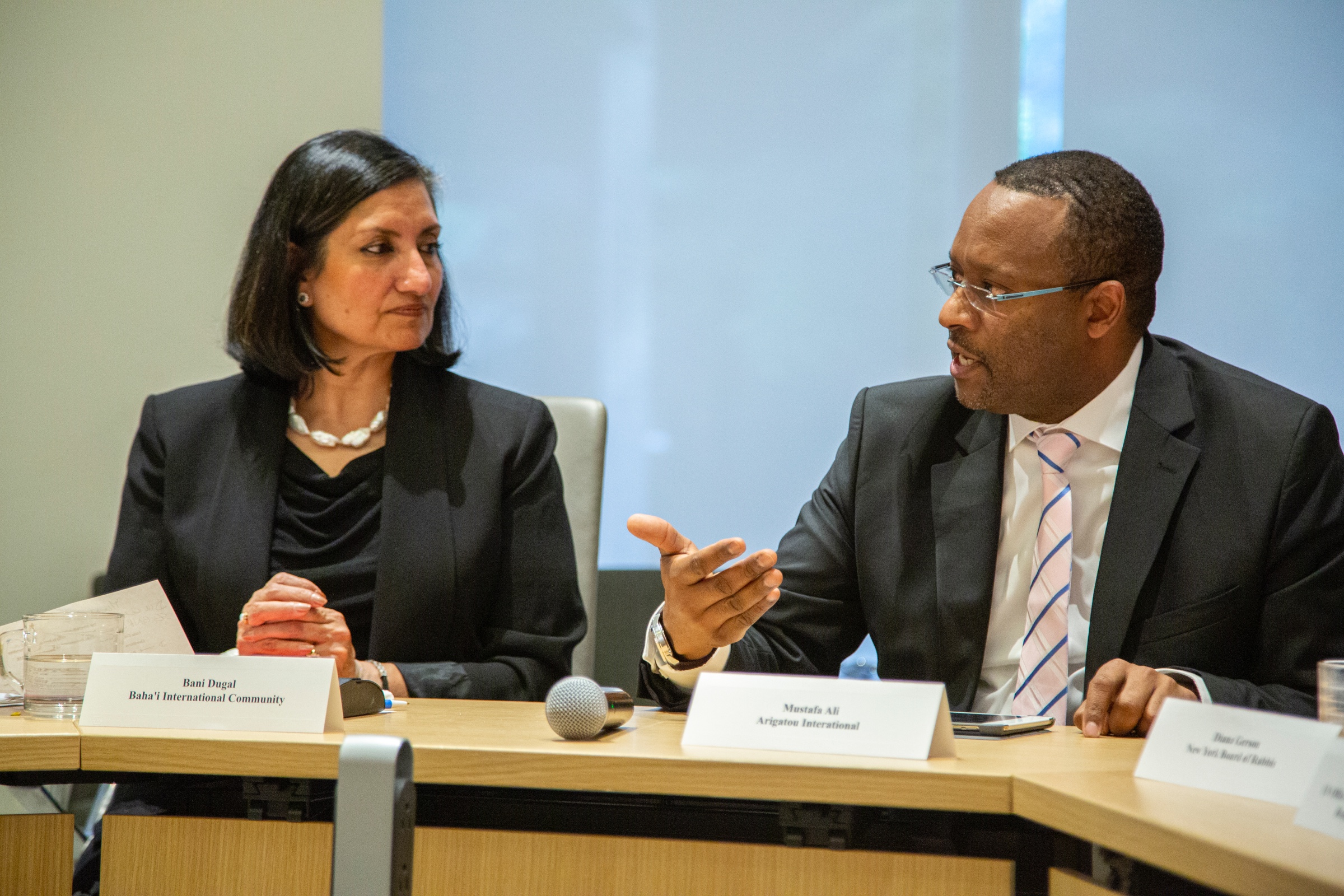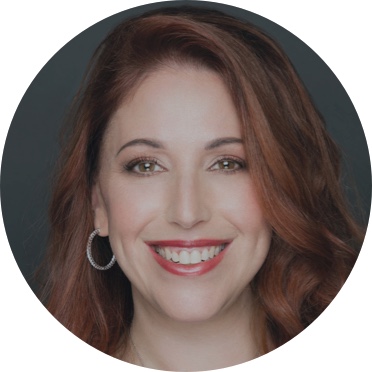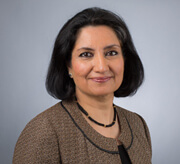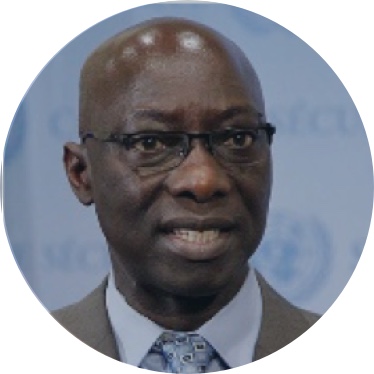Event Summary
The Interfaith Alliance for Safer Communities, together with the Bahá'í International Community, hosted an international Forum around the subject “Hate in Our Communities” at the United Nations Offices in New York City.
Key leaders and experts from the United Nations, the New York Board of Rabbis, Arigatou International, the Interfaith Alliance and the Bahá'í International Community came together to discuss hate speech and hate crimes, and the role faith leaders can play in combating them through dialogue, collaboration, and common action.
Bani Dugal, Principal Representative of the Bahá'í International Community to the United Nations, moderated the Forum, and opened the discussion by sharing examples of discrimination.
She then highlighted constructive responses that have come from religious leaders and other actors from around the world. “When we have this ‘us and them’ dynamic,” Ms. Dugal said, “others are placed outside the moral and political order and therefore, hate speech against them is somehow justified in many parts of the world.”

Dr. Mustafa Y. Ali, Director, Arigatou International Nairobi and Secretary General of the Global Network of Religions for Children (GNRC), highlighted the challenge of defining hate speech and hate crime: “There isn’t one single definition of some of these issues and it’s the responsibility of nations and ourselves to make sure that we make sure we define, agree, and come to a common understanding of what the problem is. Only then can we start resolving these challenges to peace.”
“We need to create opportunities for individuals and communities to come together, to dispel the myths, to know your neighbor, to understand who is sitting next to you,” said Rabbi Diana Gerson, Associate Executive Vice President of the New York Board of Rabbis. “However, if it stops at dialogue, then we are missing the opportunity to move from interfaith talk to interfaith action.”
Dr. Mustafa added that education at an early age is critical to instilling compassion. “If we are not going to begin with children,” he said, “we are not going to realize true peace in this world. It is so important that we capture their mind when the slates are still clean and still try to inculcate and encourage better behavior. Good behavior, Dr Mustafa added, “includes caring for the other.”
Simona Cruciani, Political Affairs Officer, United Nations Office on Genocide Prevention and the Responsibility to Protect, articulated the seriousness of hate crime. “Our office is mandated to alert the United Nations system of situations that can lead to genocide and crimes against humanity,” said Ms. Cruciani. “If hate speech is present in widespread systematic trends, then it might be a sign that something serious is about to happen.” The recently released United Nations Strategy and Plan of Action on Hate Speech was developed due to trends of hate speech and hate crimes jeopardizing the U.N.’s core values, principles, and programs.
Adama Dieng, United Nations Secretary General’s Special Adviser on the Prevention of Genocide, concluded the Forum and emphasized the role of faith leaders in establishing positive change: “We need to go back to the roots: the sacrality of life. There is nothing more sacred than life… I’m sure that each of you may feel that despite all that we are doing, we are still seeing this world going in the wrong direction. But don’t ever get discouraged. We can make sure that this world will change, and that’s where [faith leaders] have a key role to play…You are the ones closest to the communities at the grassroots level, that is why your roles are important.”
Speakers

Rabbi Diana S. Gerson
Associate Executive Vice President, New York Board of Rabbis (NYBR)

Bani Dugal
Principal Representative of the Bahá'í International Community to the United Nations

Adama Dieng
Special Adviser of the Secretary-General on the Prevention of Genocide


